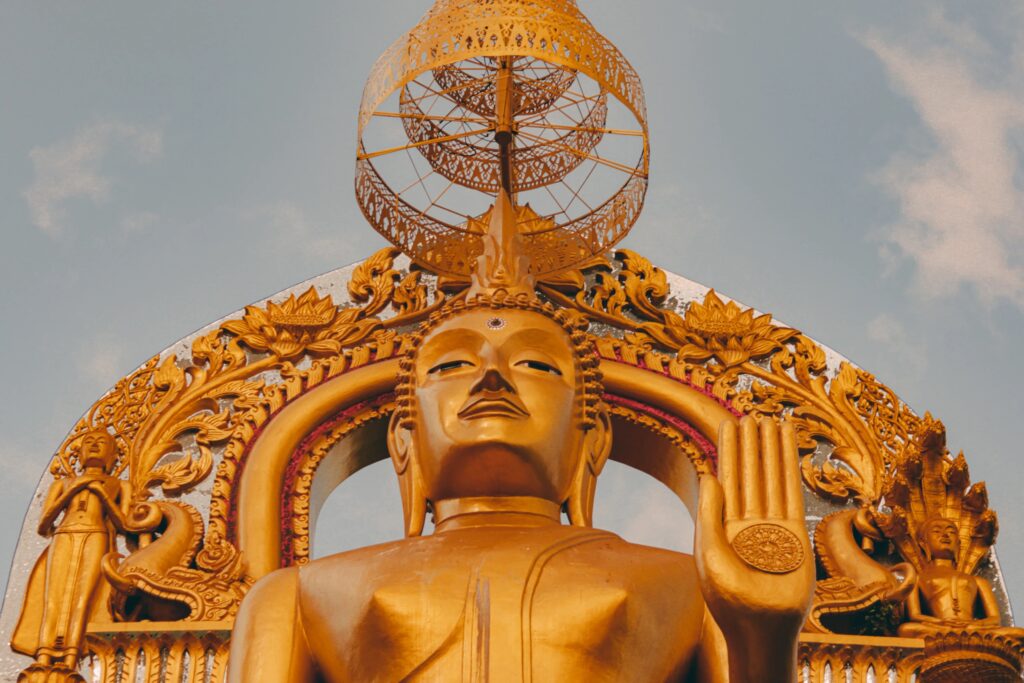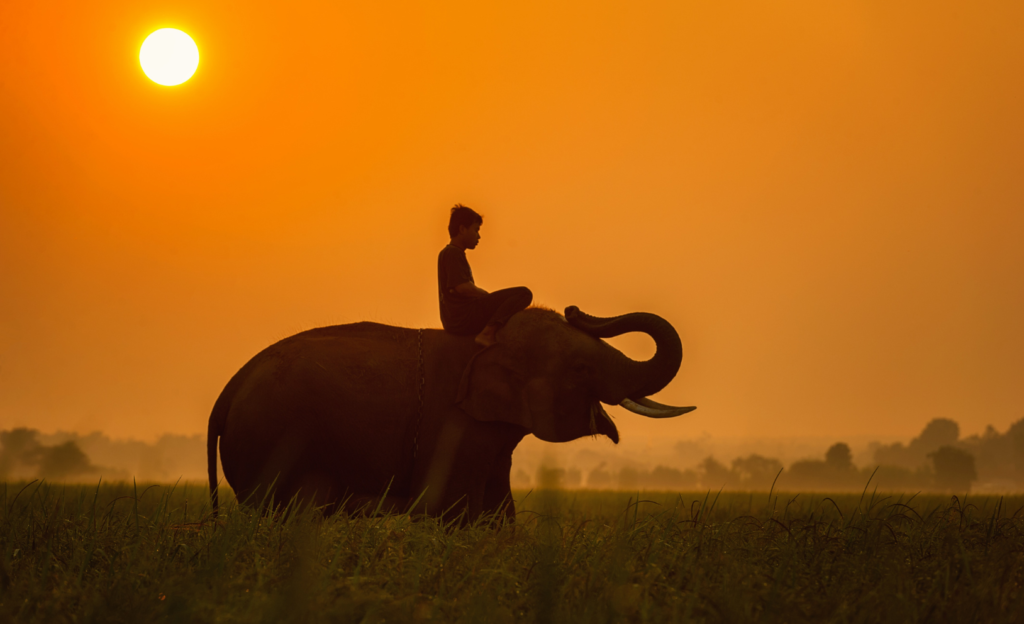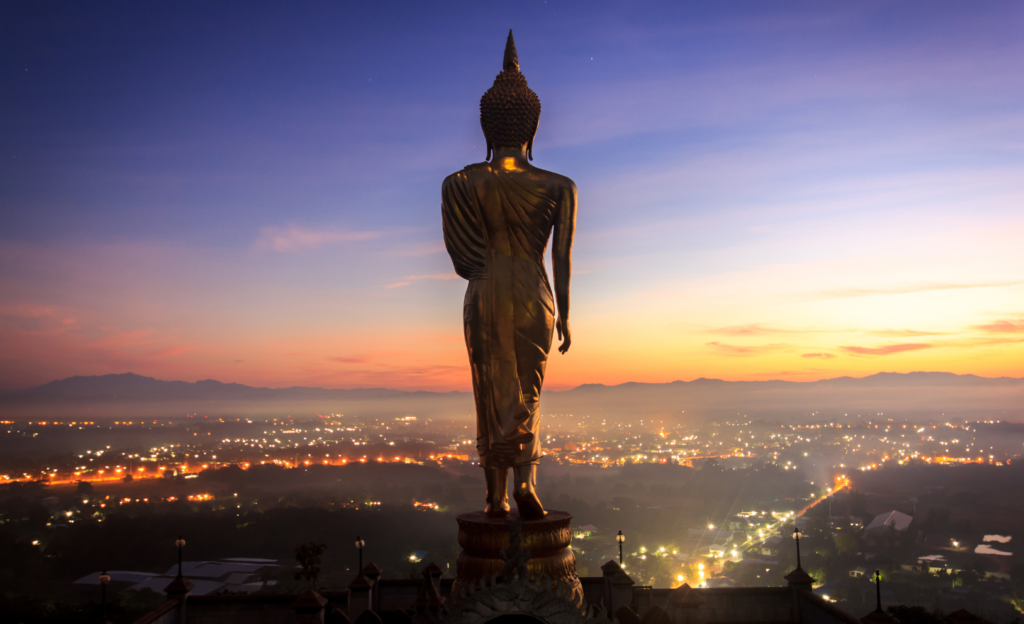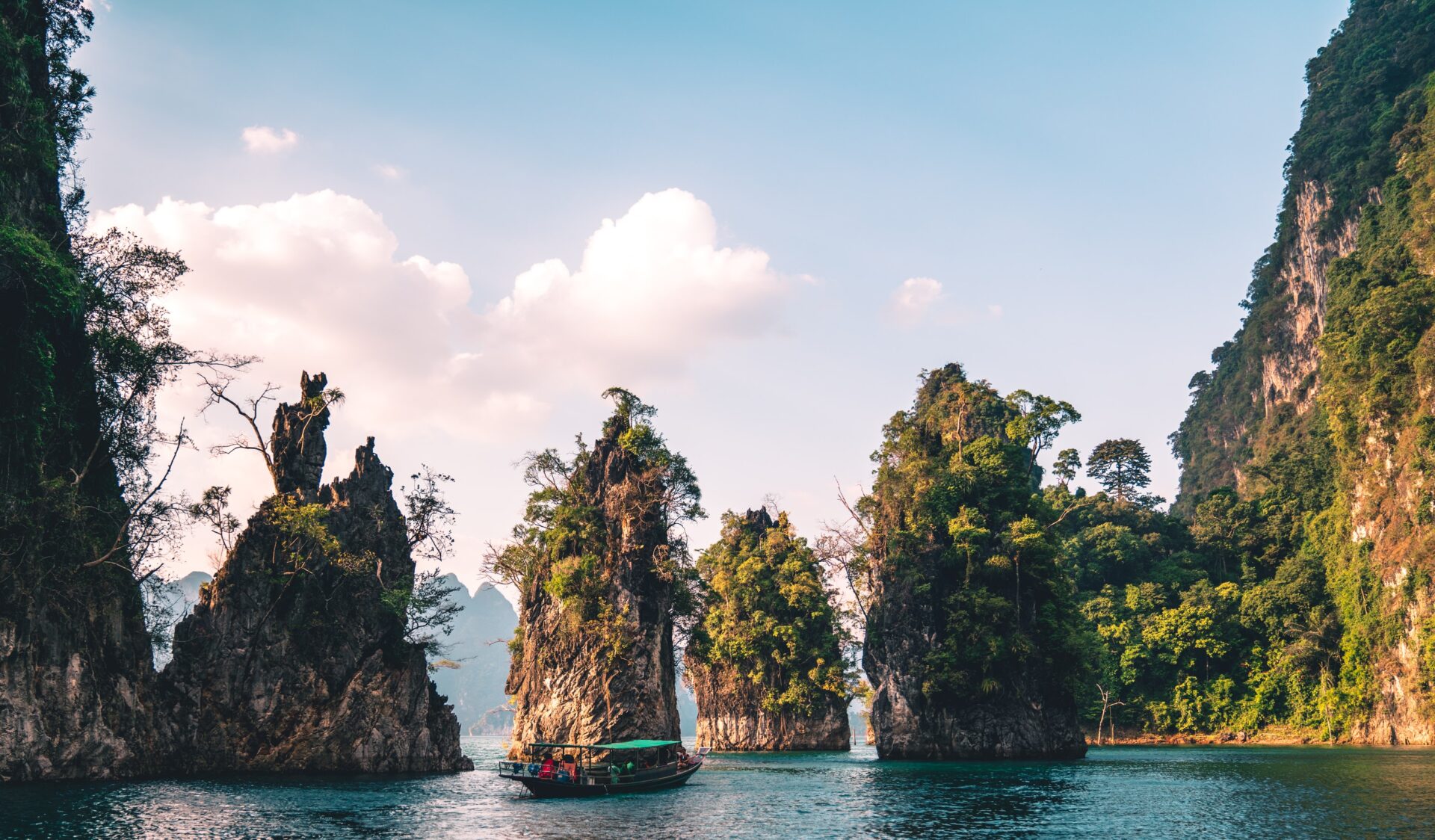Why we love Thailand
Thailand hits every sense at once – incense curling through temples, woks hissing on street corners, salt on skin after a swim. Days stretch between bright cities, quiet islands and the calm of the northern hills. It’s a country that feels generous and full of life, where every meal, market and moment lingers. This guide shares everything you need to know before you go.

Entry requirements
British and American passport holders can enter Thailand without a visa for up to 60 days under the visa exemption scheme, which can be extended once for a further 30 days. Proof of onward travel is required, so make sure you have your return or next-destination ticket handy. If you require a multiple-entry visa, apply at least one month before departure. Your passport must be valid for at least six months beyond the last day of your trip and in good condition, with no missing pages.
Please check your government’s latest travel advice if you’re entering or returning to a different country and get in touch with our Operations Team with any questions.
Health and medical
We are not certified to give medical advice, but we recommend you consult your doctor about your vaccination history and discuss any further vaccinations you may need for your trip. We recommend TravelHealthPro for travel vaccination information and advice on bringing medication into the country. No vaccinations are required for entry, but precautions against typhoid, hepatitis A, and tetanus are advised. Malaria and dengue fever are present in rural areas, so insect repellent is essential.

Getting around
We’re able to arrange your transfers for you – simply share your flight details, and we’ll plan your route and confirm the cost. For multi-stop trips, we can also organise transfers between hotels and regions.
Domestic Flights: The quickest way to cover large distances, with frequent connections between Bangkok, Chiang Mai, Phuket, and Krabi.
Taxis & Tuk-tuks: In cities, metered taxis and tuk-tuks are everywhere – always agree on fares in advance if the meter isn’t used.
Climate and packing
Thailand’s tropical climate means it’s warm year-round, with seasonal variations depending on region.
Cool & Dry Season (Nov–Apr): The best time to visit, with clear skies and comfortable temperatures across most of the country.
Hot Season (Mar–Jun): Temperatures can exceed 35°C – pack light clothing and plan for early morning or evening activities.
Rainy Season (Jun–Oct): Expect short, heavy bursts of rain, mostly in the afternoons.
What to Pack: Lightweight cotton clothing is best, with modest options for visiting temples (shoulders and knees covered). Pack a light rain jacket if travelling during the monsoon season and a jumper for cooler evenings in the north.

Laws and customs
Take a look at Thailand’s full laws and customs here.
– Always dress modestly when visiting temples – cover shoulders and knees, and remove shoes before entering.
– Do not touch or sit next to Buddhist monks if you are a woman.
– Public displays of affection are frowned upon.
– Smoking is banned on certain beaches (including Koh Samui and Phuket) and e-cigarettes are illegal.
– Avoid littering or damaging coral reefs – strict fines apply.
– The royal family is deeply respected; avoid any negative remarks or gestures.
– Avoid giving money to begging children or buying ivory or animal products.
– When taking taxis or tuk-tuks, agree on the fare beforehand.
Money matters
The currency is the Thai Baht (THB). Notes come in 20, 50, 100, 500 and 1,000 denominations. ATMs are widely available, though withdrawals often incur a small fee. Credit cards are accepted in most hotels, restaurants, and shops. Banks generally open Monday to Friday, 09:00–15:30, and offer the best exchange rates.
Tipping
Tipping is not mandatory, but bartering is part of daily life in Thailand’s markets – start at roughly a third of the asking price and enjoy the friendly negotiation! As a guide:
Restaurants: 10% is generous if service isn’t already included.
Hotel porters: 20–50 baht per bag.
Drivers and guides: 100–200 baht per person per day for guides, 50–100 baht for drivers.
Street vendors: Rounding up the bill is a nice gesture.

Practicalities
Plug type: Thailand uses plug types A, B, and C – these have either two flat pins or two round pins.
Flights and time zone: Direct flights from London to Bangkok take around 11 hours 30 minutes. Thailand is GMT +7.
Language: Thai is the official language, but English is widely spoken in cities and tourist areas. A few Thai phrases go a long way:
Hello: Sawasdee (krub/kha)
Thank you: Khop khun (krub/kha)
Yes: Chai
No: Mai
Goodbye: La gorn

Food and drink
Thai cuisine is famous worldwide for its balance of flavours – sweet, sour, salty, and spicy. Eating is a social affair, with meals often shared family-style.
Pad Thai: Stir-fried rice noodles with tamarind, lime, and peanuts.
Massaman Curry: A mild, fragrant curry with coconut milk, potatoes, and roasted peanuts.
Green Curry: Spicy and aromatic, with basil and fresh chillies.
Som Tum: A refreshing papaya salad that packs a punch.
Mango Sticky Rice: A sweet finish with coconut milk and ripe mango.
For drinks, try a fresh coconut on the beach or an ice-cold Singha beer at sunset. Coffee culture is thriving too, with iced Thai coffee and condensed milk a must-try.
Keep connected
You can easily purchase a local SIM card from airport kiosks or 7-Eleven stores – AIS, TrueMove, and Dtac are the main providers. For a hassle-free option, download an eSIM before departure via Airalo or Nomad.

